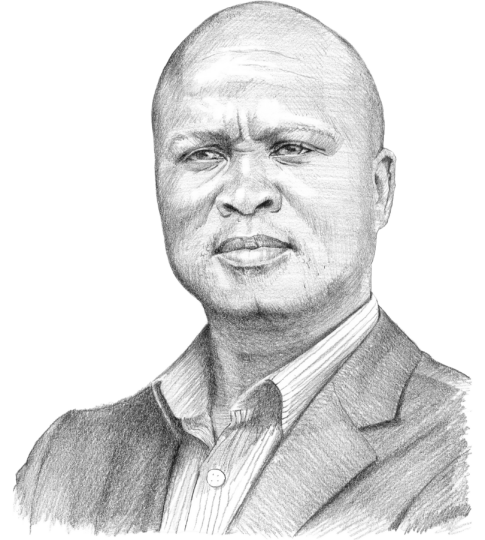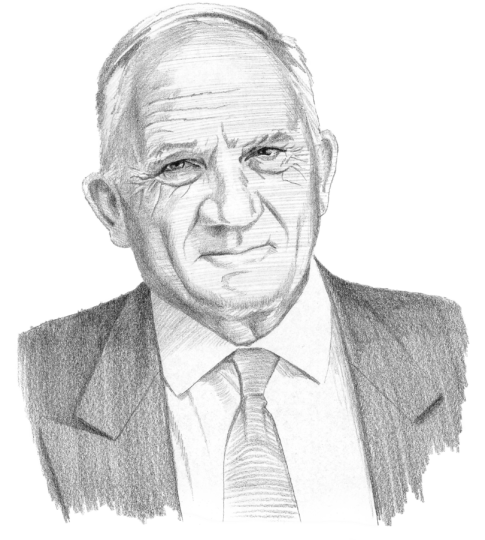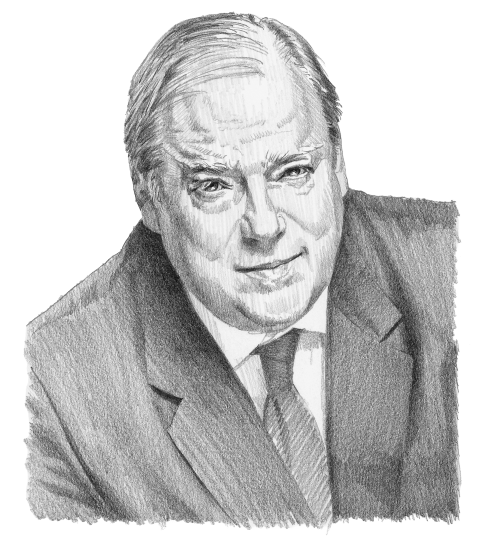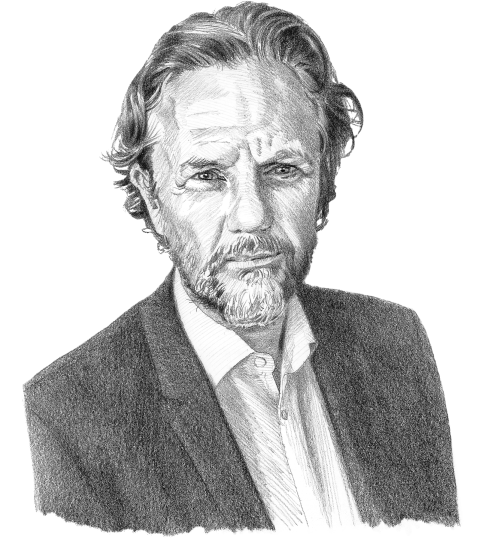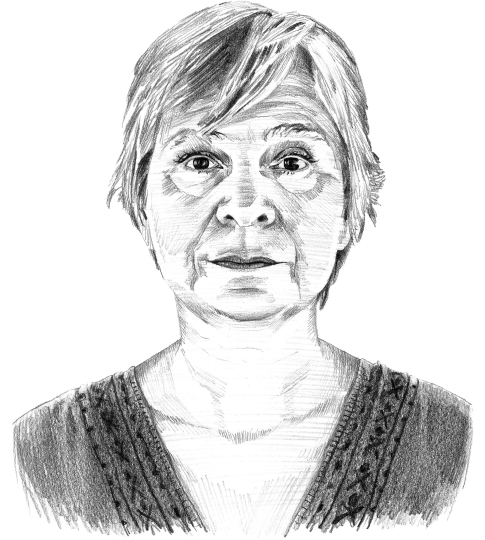The promise and peril of Worldcoin
The crypto-backed biometric identity network promises to upend finance, governance and democracy itself. Is Worldcoin a magic bullet, tool for despotism or pipe dream?
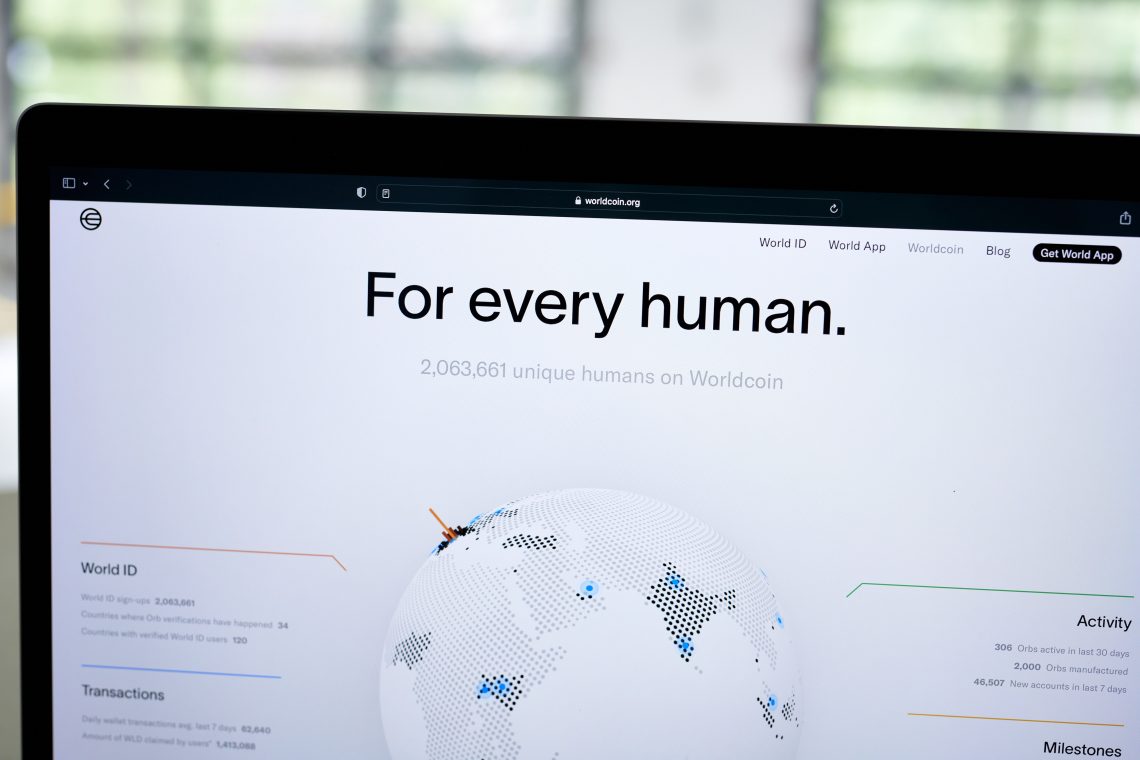
In a nutshell
- A universal identity network would have powerful, wide-ranging applications
- Worldcoin faces regulatory, technical and practical challenges
- Non-adoption may be the biggest barrier to the revolutionary change promised
When Worldcoin, the biometric cryptocurrency project, launched on July 24, 2023, three years after its inception, it was met with criticism and concern in most Western nations. In quite a few emerging economies, however, the predominant sentiment was relief. This is because that is where the 2.3 million people who had already sold their irises to the company live. They would finally receive the 25 Worldcoins they were promised as payment, even if these turned out to be worth a lot less than they had hoped.
Worldcoin’s most illustrious cofounder also appeared satisfied with the much-anticipated rollout, despite the global controversy triggered by his new project. Sam Altman, the CEO of OpenAI made famous by ChatGPT, had already drawn ire over his last groundbreaking and ambitious project, which effectively brought artificial intelligence into the mainstream. With Worldcoin, he is aiming even higher: seeking to reinvent the global financial system through a universal biometric identity network.
Worldcoin explained
Worldcoin is presented as a three-pronged technology. First is World ID, which is at the core of the company’s pitch. This is a “proof of personhood” element derived through the project’s (in)famous “Orb” device, which scans an individual’s iris within seconds and creates a unique identification code, the IrisCode. According to the company, the iris scan is subsequently deleted and the code is not linked to any personal information; its sole purpose is to ensure that there will only ever be “one person, one World ID.” Each World ID is added to the Worldcoin blockchain, allowing users to access online services without sharing any other data.
Second is the World App, essentially a wallet that holds Worldcoin tokens (as well as other digital assets and even fiat currencies). But its primary use is to store users’ credentials, and it is meant to function as a kind of passport for third-party applications.
Finally, there is Worldcoin (WLD) itself, the cryptocurrency that is supposed to make this brave new world go round. According to the Worldcoin white paper, a fixed amount of 10 billion WLD will be issued over the next 15 years. Some 43 million have already been allocated to verified World App users, and 100 million were sent to market makers. At the time of writing, WLD is trading at around $2.50.
Goals (and moving goalposts)
As Sam Altman put it on the social media platform X, “the goal is simple: a global financial and identity network based on proof of personhood. This feels especially important in the AI era. I’m hopeful Worldcoin can contribute to conversations about how we share access, benefits and governance of future AI systems.” This sounds simple enough, albeit somewhat ironic, as Mr. Altman’s new company seems to be promising to solve a problem that his last one, OpenAI, rendered a lot more urgent.
However, that was not always the stated mission. Initially, Worldcoin was sold as a way to distribute funds to every person on the planet, creating the infrastructure for a global Universal Basic Income (UBI). According to a Forbes report, Mr. Altman described his original vision to employees as follows: “Our central institutions, most powerful governments, were either going to continue to get less powerful or continue to get worse. I thought that it would be interesting to see what [it would look like to] run an experiment of just how far a technology could accomplish some of the goals that used to be done by nation-states.”
To this day, the question “What is Worldcoin for?” has not been clearly answered, but among its potential uses are “financial transactions, voting, airdropping crypto, remittances and website logins.” What the company has made clear is that it wants governments and companies to use its system.
More on digital currencies
The CBDCs are coming: Should we worry?
The risks of Worldcoin
Let us begin with the most obvious concern of all: privacy. A thorough investigation by MIT Technology Review found that “the company’s representatives used deceptive marketing practices, collected more personal data than it acknowledged and failed to obtain meaningful informed consent.” Authorities in France, Germany, Argentina and the United Kingdom have already begun investigations. Worldcoin has not launched in the United States, possibly anticipating similar regulatory fervor.
Although the company has defended its data collection and storage practices, offering vehement assurances over user privacy, the very thought of a single private entity gathering people’s biometric data en masse remains a hard pill to swallow for most ordinary citizens. It is also unpopular among the typical early adopters in this space, crypto investors, as it blatantly contradicts the central ethos of cryptocurrencies – the core principles of anonymity and decentralization on which Bitcoin and its peers were founded.
More importantly, the fact that Worldcoin chose the Global South as its test market has tainted the entire project with an uneasy sense of technological colonialism. Propositions like “free cash for iris scans” offered to people in dire need of money and who might not be in a position to give informed consent, have been seen by many critics as exploitative.
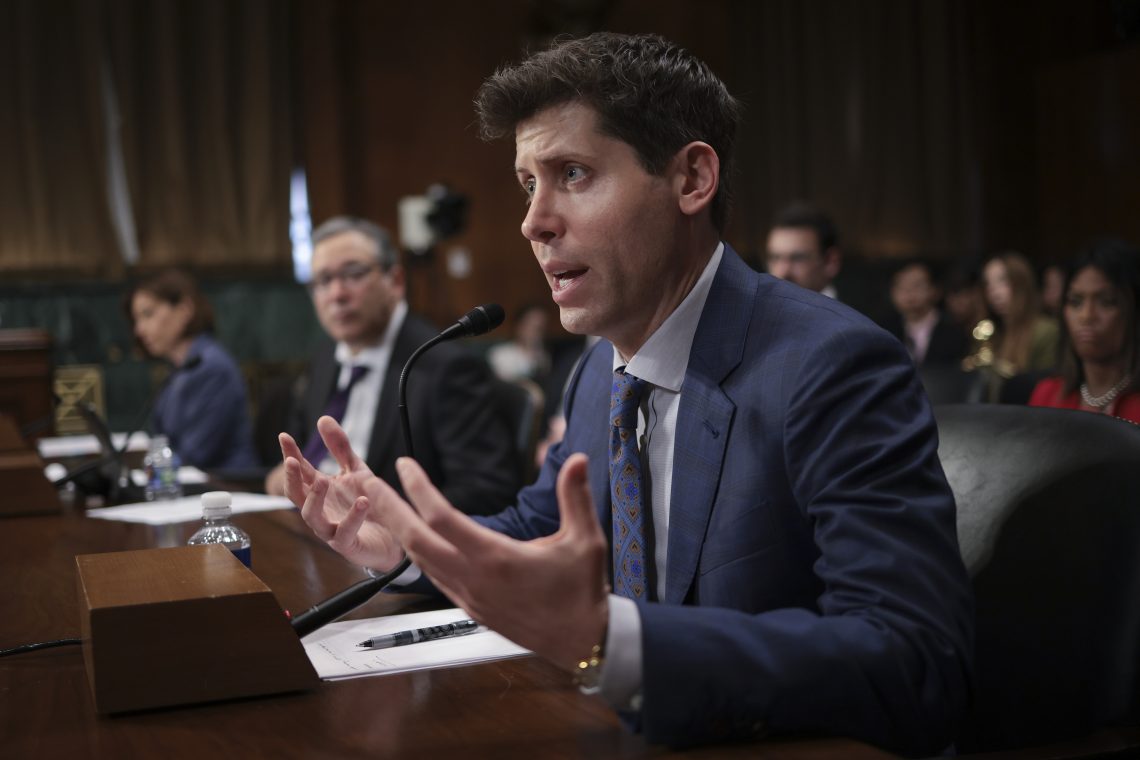
There are also practical issues. Last year, an exploit was discovered that allowed Orb operators to create multiple World IDs for the same person, which was extremely attractive thanks to the company’s “cash for scans” model. Though this loophole has now been closed, there are confirmed reports of operators in Kenya having used it. Also in Kenya – where many were enticed by the promise of compensation and flocked to the numerous Orb scanners stationed by Worldcoin in the country – users were targeted by fraudsters who took advantage of the complex cash-out process involved, and were convinced to sell their tokens far below market prices. In early August, the government finally intervened and suspended all data collection operations, also raiding a Worldcoin warehouse in Nairobi.
However, the most worrying problem to date for the company is skepticism over the reliability of its verification process. Reports have emerged that several Orbs have been compromised by hackers, who stole operators’ login credentials and proceeded to sell them on the dark web. There is already a nascent black market for World IDs. Legitimate users from developing nations now sell their IDs to buyers from countries like China, where Worldcoin is not available, or simply to those who wish to have access to the system without compromising their privacy. This threatens to obliterate Worldcoin’s entire reason for being, by seriously undermining its unique “proof of personhood” value proposition.
Scenarios
Governmental adoption
If we charitably assume that Worldcoin somehow overcomes its regulatory, practical and technical obstacles and that it can also sway public opinion and achieve mass adoption, then one of the most straightforward use cases would be via government collaboration. As Mr. Altman made clear in one of his earlier interviews about the project, “I’ve been very interested in things like universal basic income and what’s going to happen to global wealth redistribution.”
A tool like Worldcoin would have made schemes like the pandemic relief payments run much more smoothly, and it would certainly be useful to states even for ordinary purposes, like welfare payments or fiscal stimulus distribution. However, as AI takes root – as it gets more specialized and pushes more jobs to the brink of extinction – some form of UBI does seem to be Worldcoin’s most plausible application in the not-so-distant future.
Beyond this specific function, the Worldcoin infrastructure could provide an interesting “shortcut” for all kinds of other government services, policies and schemes, and for countless companies too. If Worldcoin can successfully complete the necessary grunt work and the very onerous tasks of scanning, matching and inextricably linking every citizen’s physical and digital identities, then the end product – an all-in-one, immutable, irrefutable and inescapable digital identity tool – would be truly priceless. Such a panoptical technology could track everything from consumer behavior to work, financial details, personal movements, social networks and political or religious affiliations.
This comes with grave concerns over the potential for abuse. Whoever wields such power could ultimately have control over the very right of a person to officially exist. In our increasingly digitized world, such a formidable tool – especially if controlled by governments – could be as consequential and absolute as a life prison sentence. If individuals need a single World ID to participate in the workforce and the marketplace, to be “verified” and recognized in their local, national and global community and to secure access to the bare necessities like food and shelter, then excommunication from such an integrated world system would effectively amount to the elimination of their personhood.
Democratic change
In a more hopeful scenario, Worldcoin would be adopted as an anonymous yet indubitably accurate method for voting in elections. This could deliver a “holy grail” to democratic societies: guaranteeing free and fair elections, facilitating independent referendums and clearly manifesting public disapproval and dissent, all with reliable and indisputable results.
World ID, as it is envisioned (or at least promoted), would give a voice to those who need it the most. Tyrants and dictatorships would face greater public pressure. The weakest, poorest, most vulnerable and most marginalized members of society would be empowered. All those millions of silenced, terrorized, deceived and victimized citizens who are currently too scared, too defeated, too drained and too dispirited to stand up for their beliefs – to challenge the powers that be, to contradict, criticize and mock the ideas they object to – could be given a new, mighty weapon. What’s even more interesting about this new weapon is that it doesn’t need to be sanctioned, permitted or centrally controlled by a particular regime.
If World ID really does become widely available, any civil society organization or political opposition body could organize a vote or a referendum at any time to clearly demonstrate public discontent. Such initiatives can even be organized from outside a dictatorial state and still manage to prove the votes were accurate and legitimate.
A Worldcoin-based voting system could facilitate true freedom of speech: anonymous, protected, direct and unadulterated, a right that could be equally and freely exercised by anyone, anywhere, anytime. It could in practice deliver “one person, one vote” across the globe – real universal suffrage and fair, direct representation. What tyrant, what autarch, what despot could ever stand a chance against true mass emancipation? Even “established” democracies could seek meaningful change, becoming more subject to the will of a direct, majority vote.
However, such an outcome could be a blessing or a curse. It could bring us a step closer to a fairer, more equal, more harmonious, more peaceful and productive society. Or it could prove to be a move toward a tyranny of the majority, or even toward actual mob rule. It could lead to a society that is intimidated and thus forever unenlightened by people and ideas that challenge the mainstream narrative – one that rewards conformity, obedience and mediocrity and that is ruled by the “lowest common denominator.”
Public rejection
All of these possibilities so far hinge on the assumption that the system envisioned by Worldcoin is realistically achievable. It is more likely, at least from our present, albeit limited, vantage point, that most citizens would side with the view of Edward Snowden: “Don’t catalog eyeballs. Don’t use biometrics for anti-fraud. In fact, don’t use biometrics for anything. … The human body is not a ticket-punch.”
For industry-specific scenarios and bespoke geopolitical intelligence, contact us and we will provide you with more information about our advisory services.


